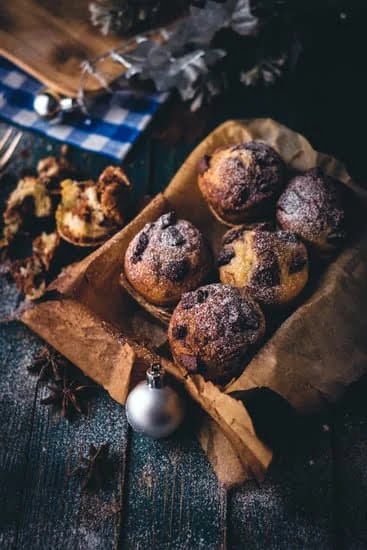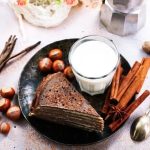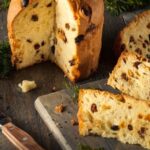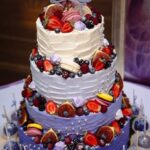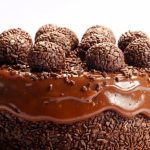Cake decorating wafer paper has gained significant popularity in recent years for its versatility and convenience. Bakers and cake decorators alike have embraced this innovative tool, recognizing the endless possibilities it offers in creating stunning cake designs. In this article, we will explore the reasons behind the rising fame of cake decorating wafer paper and delve into its unique qualities that set it apart from other cake decorating materials.
Gone are the days when cake decorations were limited to traditional frosting techniques. With the advent of cake decorating wafer paper, a whole new world of design options has opened up. This ultra-thin edible paper is made from potato starch and vegetable oil, making it not only delicious but also easy to work with.
What sets wafer paper apart is its ability to hold intricate details while effortlessly adhering to cakes without added moisture or icing. This allows bakers and decorators to achieve intricate designs and vibrant prints without compromising on taste or texture. Furthermore, wafer paper can be easily cut, shaped, and molded into various forms, making it an ideal choice for creating unique decorations.
Whether you’re a professional baker or a passionate home decorator, using cake decorating wafer paper offers countless advantages in terms of time-saving capabilities and ease of use. It eliminates the need for complex piping techniques and hours spent meticulously hand painting designs on cakes. With wafer paper, you can now effortlessly add personalized images, patterns, and textures to your creations in no time at all.
In the following sections of this article, we will delve deeper into the world of cake decorating wafer paper.
We will explore its composition, highlight its benefits, provide creative techniques for using it in your designs, offer tips for working with it effectively, showcase different types and designs available in the market, discuss where to purchase it, answer frequently asked questions about wafer paper, and conclude with a call-to-action urging readers to embrace this trending choice in their own cake decorating endeavors.
What is Cake Decorating Wafer Paper
Cake decorating wafer paper is a versatile and innovative tool that has gained popularity in recent years among bakers and cake decorators. But what exactly is wafer paper? Wafer paper, also known as rice paper, is a thin edible sheet made from potato starch, vegetable oil, and water. It has a smooth texture and a translucent appearance, making it ideal for creating delicate decorations on cakes.
Unlike other cake decorating tools and materials, such as fondant or buttercream icing, wafer paper offers unique qualities that set it apart. Firstly, wafer paper is incredibly thin and flexible, allowing decorators to create intricate designs with ease. It can be easily cut into different shapes, layered for added dimension, or manipulated into three-dimensional structures.
Another advantage of using wafer paper in cake decorating is its lightness. Unlike heavier materials like fondant or gum paste, wafer paper adds minimal weight to the cake while still providing stunning decorative elements. This makes it especially useful when creating tiered cakes or designs that require structural stability.
In addition to its versatility and ease of use, wafer paper also offers time-saving capabilities. Decorating with wafer paper can be quick and efficient since there’s no need for drying or setting time like with fondant or royal icing. Bakers can simply attach the pre-cut designs onto their cakes using edible glue or water.
Overall, cake decorating wafer paper provides an exciting alternative for bakers and cake decorators looking to add unique and eye-catching elements to their creations. Its composition and characteristics make it an essential tool in achieving professional-looking designs without the added fuss. In the next section, we will explore the benefits of using wafer paper in more detail.
The Benefits of Using Cake Decorating Wafer Paper
Cake decorators and bakers have increasingly turned to cake decorating wafer paper due to its numerous benefits. One of the main advantages of using wafer paper is its ability to enhance the overall look and design of cakes. Wafer paper is incredibly thin, making it easy to create intricate designs and delicate decorations. It can be molded into various shapes and patterns, allowing decorators to add stunning details to their creations.
Another benefit of using cake decorating wafer paper is its time-saving capabilities. Compared to other cake decorating materials such as fondant or royal icing, wafer paper requires less preparation and drying time. This makes it a convenient choice for decorators who need to work on multiple cakes within a tight deadline. Additionally, wafer paper can be easily cut into different sizes and shapes, reducing the amount of time needed for intricate cutting or molding.
Ease of use is another advantage that cake decorators appreciate about wafer paper. Unlike fondant or gum paste, which may require some level of skill and practice to work with, wafer paper can be effortlessly applied onto cakes with just a small amount of edible adhesive or water. This makes it ideal for beginners or those who prefer a simpler approach to cake decorating.
Creative Ways to Use Cake Decorating Wafer Paper
Cake decorating wafer paper offers endless possibilities for creating unique and visually stunning cake designs. With its versatility and ease of use, bakers and cake decorators can unleash their creativity and elevate their cakes to the next level. In this section, we will explore some creative techniques and applications of wafer paper, provide step-by-step instructions for incorporating it into cake designs, and share inspiring examples and images of cakes decorated using wafer paper.
Image Transfer
One creative way to use cake decorating wafer paper is through image transfer. By printing or drawing designs onto the wafer paper, you can easily transfer them onto your cake surface. To achieve a clean transfer, lightly moisten the area on the cake where you want the design to be placed.
Carefully place the wafer paper on top of the moistened area and gently smooth it out to remove any air bubbles or wrinkles. The moisture will activate the natural adhesive properties of the wafer paper, allowing it to adhere to the cake surface.
Cut-Out Designs
Another way to incorporate wafer paper into your cake design is by creating cut-out designs. Using edible scissors or a craft knife, carefully cut out shapes or patterns from the wafer paper. These cut-outs can then be applied directly onto a fondant-covered cake or used as accents on cupcakes or cookies. Experiment with different shapes such as flowers, butterflies, or even intricate lace patterns to add a whimsical touch to your baked creations.
Ruffled Wafer Paper Accents
For those who want to add texture and volume to their cakes, ruffled wafer paper accents are an excellent option. To create these delicate ruffles, cut long strips of wafer paper and accordion-fold them in even intervals. Apply a thin layer of edible glue along one edge of the folded strip and attach it to the desired area on the cake.
Gently unfold and fluff the wafer paper, creating a beautiful ruffled effect. This technique works well for creating cascading ruffles or elegant drapes on wedding cakes.
Wafer Paper Flowers
Wafer paper flowers are a popular choice for cake decorators looking to add a touch of elegance and beauty to their designs. To create these delicate and realistic-looking flowers, start by cutting out individual petals or entire flower shapes from the wafer paper. Use an edible glue or water to adhere the petals together, layering them to form a three-dimensional shape. Play with different colors and sizes to create stunning floral arrangements that will impress any recipient.
Whether you’re looking to create intricate designs or simply add a touch of elegance, cake decorating wafer paper offers countless creative possibilities. From image transfers to cut-out designs, ruffled accents, and delicate flowers, you can let your imagination run wild with this versatile medium. The next section will provide practical tips and tricks for effectively working with wafer paper to achieve professional-looking results.
Tips and Tricks for Working with Cake Decorating Wafer Paper
Cake decorating wafer paper has become a popular choice among bakers and cake decorators due to its versatility and convenience. However, working with wafer paper can sometimes present challenges. In this section, we will provide you with some useful tips and tricks for effectively working with cake decorating wafer paper.
Tip 1: Handling the Wafer Paper
When working with wafer paper, it is important to handle it with care as it is very delicate. To prevent tearing or wrinkling, make sure your hands are clean and dry before touching the paper. If your recipe requires the wafer paper to be cut into specific shapes or designs, use a sharp pair of scissors or craft knife for more precise cuts.
Tip 2: Applying Wafer Paper to Cakes
To adhere the wafer paper onto your cakes, you can use edible glues or clear piping gel. Apply a thin layer of the adhesive onto the surface of your cake before carefully placing the wafer paper on top. Gently smooth out any wrinkles or air bubbles using a clean, dry brush or your fingertips.
Tip 3: Adding Color to Wafer Paper
One of the unique qualities of wafer paper is that it can absorb food coloring and create vibrant designs. To add color to your wafer paper, you can either brush edible food coloring directly onto the paper or mix gel food coloring with alcohol (such as vodka) and airbrush it onto the surface. Allow the colored wafer paper to dry completely before using it in your cake decorations.
| Tip | Description |
|---|---|
| Handling the Wafer Paper | Handle with clean and dry hands; use sharp scissors for precise cuts |
| Applying Wafer Paper to Cakes | Use edible glues or clear piping gel; smooth out wrinkles and air bubbles |
| Adding Color to Wafer Paper | Brush or airbrush edible food coloring onto the paper; allow to dry completely |
By following these tips and tricks, you can ensure a smoother experience when working with cake decorating wafer paper. These techniques will help you achieve professional-looking results and enhance the overall design of your cakes. Remember to practice and experiment with different techniques to unlock the full creative potential of wafer paper in your cake decorations.
Exploring Different Types and Designs of Cake Decorating Wafer Paper
Cake decorating wafer paper offers a wide range of options when it comes to types and designs. Whether you’re looking for a simple yet elegant design or something bold and eye-catching, there is an option out there to suit your needs.
When exploring the different types of cake decorating wafer paper, one of the first considerations is the thickness. Wafer paper typically comes in two main thicknesses: 0.25mm and 0.5mm. The 0.25mm thickness is more flexible and ideal for delicate decorations such as flowers, while the 0.5mm thickness provides sturdier support for larger designs.
In addition to thickness, there are various designs and patterns available in cake decorating wafer paper. Some popular options include:
- Shimmering Metallics: Wafer paper with metallic finishes adds a touch of elegance and sparkle to any cake design.
- Marbled Effects: This design gives a beautiful organic look with swirling patterns in different colors.
- Watercolor Tones: Soft pastel hues create a dreamy and artistic effect on cakes.
- Printed Designs: From floral prints to geometric patterns, printed wafer paper opens up endless possibilities for creative cake designs.
Another aspect to consider when choosing cake decorating wafer paper is the texture. There are options available with both smooth and textured finishes, allowing bakers to further customize their cakes according to their desired look and feel.
Whether you’re planning a wedding cake, a birthday cake, or a special occasion dessert, cake decorating wafer paper offers an abundance of options to suit any theme or style. By exploring the different types and designs available, you can add a unique touch to your creations and elevate them from ordinary to extraordinary.
Where to Buy Cake Decorating Wafer Paper and Cost Considerations
When it comes to purchasing cake decorating wafer paper, there are a few options available for both online and offline shopping. Many reputable retailers specialize in baking supplies and offer a wide range of wafer paper products. These include large online platforms such as Amazon, as well as specialty baking stores and craft stores.
Online retailers provide the convenience of shopping from the comfort of your own home, with the added benefit of being able to compare prices and read customer reviews before making a purchase. Websites like Amazon, Global Sugar Art, and Fancy Flours offer a variety of wafer paper options in different sizes, designs, and thicknesses.
For those who prefer to browse physical stores or want immediate access to the product, local baking supply stores or craft stores can be a great option. Stores like Michaels, Joann Fabrics, and specialty cake supply shops often carry wafer paper in their baking sections.
When purchasing cake decorating wafer paper, it is important to consider cost considerations. Prices can vary depending on factors such as brand, quantity, size, and design of the wafer paper. On average, a pack of 25-50 sheets of standard thickness (0.3 mm) wafer paper can range from $5 to $15.
| Online Retailer | Price Range (Pack of 25-50 sheets) |
|---|---|
| Amazon | $5 – $15 |
| Global Sugar Art | $6 – $12 |
| Fancy Flours | $8 – $10 |
It’s also worth noting that the price may vary depending on the thickness and size of the wafer paper sheets. Thicker or larger sheets may cost slightly more due to the additional material required.
When choosing where to buy cake decorating wafer paper, it’s important to consider factors such as reputation, customer reviews, and shipping options if purchasing online. Additionally, it can be beneficial to compare prices and availability across different retailers to ensure you are getting the best deal for your needs.
Frequently Asked Questions about Cake Decorating Wafer Paper
What is cake decorating wafer paper?
Cake decorating wafer paper is a thin, edible paper that is commonly used in cake decorating to add intricate designs and decorations to cakes. It is made from potato starch, water, and vegetable oil, which gives it its translucent and flexible properties. The paper is typically white or ivory in color, but it can also be found in various shades and colors for more vibrant designs.
How do you use cake decorating wafer paper?
Using cake decorating wafer paper is simple and straightforward. First, you need to decide on the design or pattern you want to create on your cake. You can either hand-cut the wafer paper into different shapes or use pre-printed sheets with specific designs.
To attach the wafer paper to the cake, lightly brush the surface of the area with water or edible glue, then carefully place the wafer paper onto the wet surface. Gently press down on the edges to make sure it adheres securely.
Can I use cake decorating wafer paper on any type of cake?
Yes, you can use cake decorating wafer paper on most types of cakes, including buttercream-frosted cakes, fondant-covered cakes, and even naked cakes. The key is to make sure that the surface of the cake is moist enough for the wafer paper to stick properly. If working with a buttercream-frosted cake, lightly misting it with water before applying the wafer paper can help improve adherence.
Is cake decorating wafer paper safe to eat?
Yes, cake decorating wafer paper is safe for consumption as it is made from food-grade ingredients. However, keep in mind that while it adds visual appeal to your cakes, it doesn’t offer much in terms of taste or texture. Some people may choose to peel off the wafer paper before eating the cake, while others enjoy it along with the cake. It is a matter of personal preference.
How long does cake decorating wafer paper last on a cake?
The longevity of cake decorating wafer paper on a cake depends on various factors such as humidity and the type of frosting used. In general, wafer paper can last for several hours to a few days on a frosted cake without losing its integrity. However, it is best to apply the wafer paper just before serving to maintain its crispness and vibrancy.
Can I store cakes decorated with wafer paper?
Yes, you can store cakes decorated with wafer paper but there are a few considerations to keep in mind. If storing in the refrigerator, make sure that the cake is covered to prevent moisture from affecting the wafer paper. Also, avoid placing heavy objects or wrapping materials directly on top of the wafer paper as it may cause it to wrinkle or lose its shape.
By addressing these frequently asked questions about cake decorating wafer paper, aspiring bakers and cake decorators will have a better understanding of how to use this versatile tool in their creations.
Conclusion
In conclusion, cake decorating wafer paper has become a popular choice among bakers and cake decorators in recent years. With its versatility and convenience, wafer paper offers a unique way to enhance the overall look and design of cakes. Its time-saving capabilities and ease of use make it an attractive option for both professionals and amateurs in the field.
The benefits of using cake decorating wafer paper are numerous. It allows for endless design possibilities and customization options, with unique patterns, prints, and textures available for various cake themes and occasions. Additionally, incorporating wafer paper into cake designs is a creative way to elevate the visual appeal of the final product.
For those interested in working with wafer paper, there are tips and tricks that can help achieve professional-looking results. Overcoming common challenges such as handling the delicate nature of wafer paper can be made easier with practical advice from experts in the field.
Ultimately, cake decorating wafer paper opens up new doors for creativity in the baking world. By giving it a try, aspiring bakers and cake decorators can unleash their own innovative ideas to create stunning edible works of art. So why not take the leap into this trending choice and explore the possibilities that wafer paper has to offer?
Frequently Asked Questions
How do you use wafer paper to decorate a cake?
Wafer paper can be used to decorate a cake by cutting it into desired shapes or designs and then applying it onto the surface of the cake. To do this, you can use edible glue or a light coating of water on the back of the wafer paper to help it stick to the cake.
Care should be taken when handling the wafer paper as it is delicate and can tear easily. You can also add additional decorations such as edible paints or food coloring to enhance the design on the wafer paper.
Will buttercream melt wafer paper?
Buttercream icing can cause wafer paper to become soft and lose its crispness if directly applied onto it. This, in turn, may cause the wafer paper to shrink or wrinkle.
To prevent this, it is recommended to create a barrier between the buttercream and wafer paper by either applying a thin layer of fondant or ganache before attaching the wafer paper. This allows for better adhesion while also preserving the integrity of both the buttercream and wafer paper.
Can I put a cake with wafer paper in the fridge?
Yes, you can put a cake with wafer paper in the fridge; however, caution should be exercised to prevent any damage to both the cake and the wafer paper decorations. Prior to storing in the fridge, it is essential to make sure that any exposed parts of the cake are covered securely with plastic wrap or stored in an airtight container.
Moisture from condensation can cause blotching or warping on wafer paper, so any contact with damp areas should be minimized. When removing from the fridge, allow the cake to come back to room temperature gradually without touching or moving it excessively until any condensation has evaporated completely.

Welcome to our cake decorating blog! My name is Destiny Flores, and I am the proud owner of a cake decorating business named Cake Karma. Our mission is to provide delicious, beautiful cakes for all occasions. We specialize in creating custom cakes that are tailored specifically to each customer’s individual needs and tastes.

